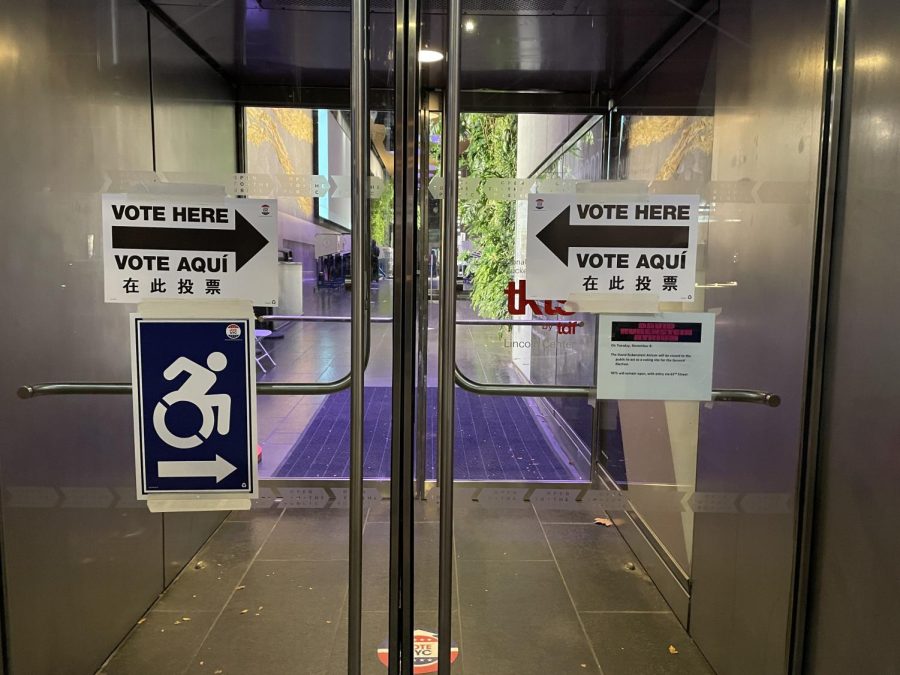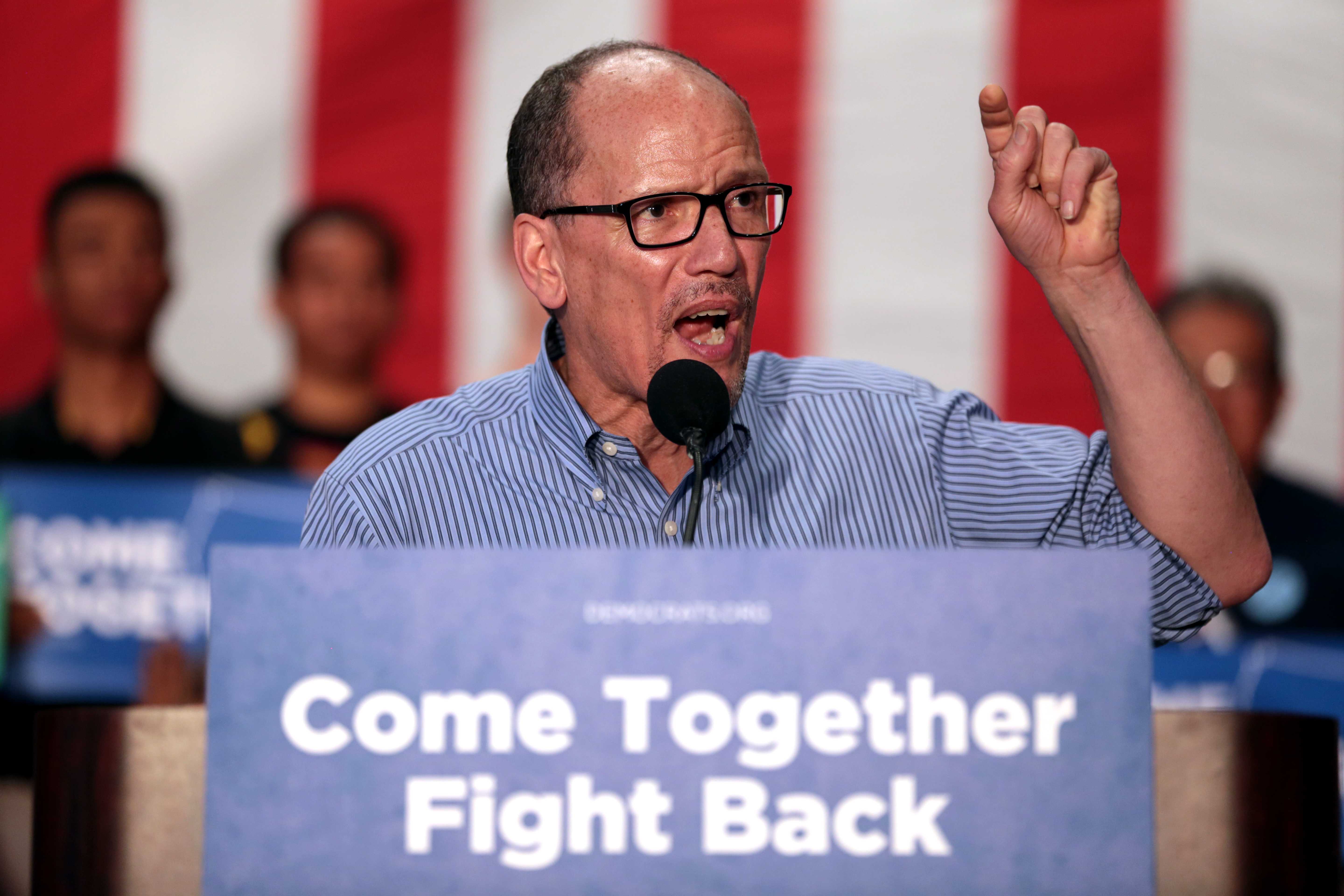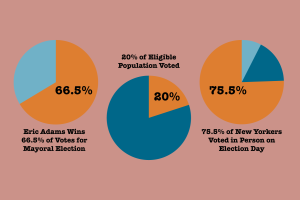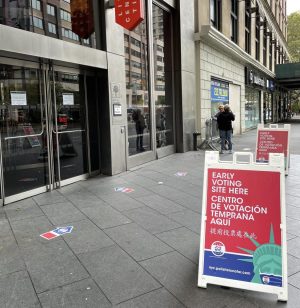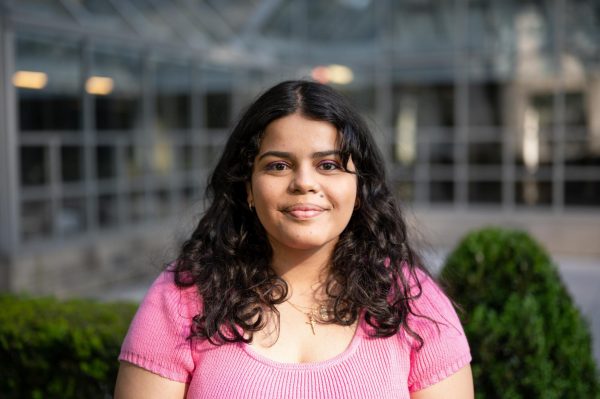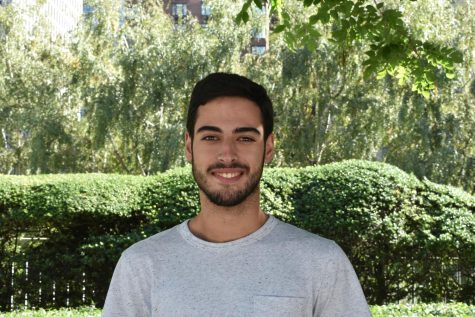Students and Staff React to 2022 Midterm Elections
Reproductive rights and voter access are among the issues that affected decisions at the polls this November
The 2022 midterm elections pressed voters with important issues including drug policy, voting access and reproductive rights.
November 16, 2022
UPDATE: This article was originally published before the party control of the House of Representatives was determined. As of Nov. 16, the Republican Party has won 218 districts, surpassing the majority and securing control of the House, and the Democratic Party has won 211, with six races still undetermined. As of Nov. 18, the article has been updated to reflect this information.
The 2022 U.S. general midterm elections, which concluded on Nov. 8, highlighted multiple issues on ballots across the nation and consisted of tight electoral races between candidates that determined governorships and party controls for the House and Senate. According to The New York Times (NYT), one of the topics highlighted nationwide was abortion rights, which is a result of the reversal of Roe v. Wade via the case of Dobbs v. Jackson Women’s Health Organization. Other topics that brought voters to the polls included conversations concerning drug policies and voting access.
The Democratic Party recently maintained control of the Senate after Catherine Cortez Masto’s win in Nevada, giving the Democrats a 50-49 Senate majority. Georgia’s Senate election will advance to a runoff scheduled on Dec. 6 due to neither Democratic candidate Raphael Warnock nor Republican candidate Herschel Walker receiving over 50% of the votes.
On Nov. 16, The Republican Party won control of the House and reached the necessary 218 districts to gain a majority. As of Nov. 18, the Democrats hold 212 districts while the Republicans hold 218 — the races of five districts are still too close to call. Previously, the Democratic Party held the majority following the U.S. House election results of 2020, after winning 222 districts compared to the Republicans’ 213.
For the Senate races, the Democrats were able to flip one seat, in Pennsylvania, in the election between Democratic candidate John Fetterman, Republican candidate Mehmet Oz and Libertarian candidate Erik Gerhardt. According to NYT, these wins in the Democratic Party and the tight races across the country, both for governorships and positions in the House and Senate, have led Republicans to question their performance in the midterms.
Political Science Professors Share Key Insights Into Midterm Elections
Christina Greer, associate professor of political science at Lincoln Center, spoke in a panel co-sponsored by the Academy of Political Science, Columbia University’s School of International and Public Affairs (SIPA), and the Tenement Museum, hosted at the Museum at Eldridge Street on Nov. 3. The event, titled “2022 Midterm Elections: Democracy at Risk,” discussed the issues highlighted in the midterms and the importance of voting in the elections.
Ester Fuchs, professor of international and public affairs and political science at SIPA, moderated the panel and posed a question to Greer regarding redistricting and voter turnout across the state.
“My students in the audience would know this: I always say that states are inherently red,” Greer said. “There just have to be enough districts within those states to turn them blue.”
On the topic of reproductive rights, Berg highlighted that, for several decades, the Democrats have done better locally and nationally in terms of gathering the attention of women voters in comparison to men.
In discussing voter turnout and the issues that would bring voters to the polls, Bruce Berg, professor of political science at Fordham Rose Hill, noted that crime, the economy, reproductive rights and the future of democracy were issues highlighted in New York City polls this election cycle. Berg also mentioned that, in New York specifically, the governor’s race was a major debate topic as Democratic candidate and current governor Kathy Hochul was seeking a full term in her race against Republican candidate Lee Zeldin.
With his research specializing in New York City politics and intergovernmental politics, Berg noted that Manhattan and the Bronx are Democratic party strongholds. According to Berg, he did not foresee Zeldin resonating with those two boroughs, especially on his crime campaign, which aimed to oppose any efforts to defund the police, increase the number of police officers and require unanimous decisions by Parole Commissioners granting parole. Berg also noticed that Hochul did not perform as strongly as previous Democratic candidates either.
On the topic of reproductive rights, Berg highlighted that, for several decades, the Democrats have done better locally and nationally in terms of gathering the attention of women voters in comparison to men. He added that although Zeldin said that New York State’s policy on abortion would not change if he were elected governor, he’s not sure that voters trusted that statement “given the Republican party position on this issue nationally.”
“Social science research suggests that people don’t like to lose things they’re used to having. Furthermore, the majority of people polled support abortion access in some way.” Zein Murib, assistant professor of political science and co-director of the women, gender and sexuality studies department at Fordham
Zein Murib, assistant professor of political science and co-director of the women, gender and sexuality studies department at Fordham, noted that the Dobbs decision may have been a factor for people going to cast their ballots.
“Social science research suggests that people don’t like to lose things they’re used to having,” they said. “Furthermore, the majority of people polled support abortion access in some way.”
Faculty and Students Speak on Their Voting Experience
When voting, Berg noted that he faced no problems and was able to vote up the street from where he resides in the Upper West Side, and Murib shared that they were traveling before the midterms, so they voted absentee in New York City but heard differing experiences from their students.
“I was lucky to get my ballot in time to submit it, but I’ve heard many stories of students from states like Arizona and Illinois not receiving the absentee ballots they requested, which means those students were disenfranchised,” Murib said.
One student who experienced such issues was Maribelle Gordon, Fordham College at Rose Hill ’25. She shared that her voting experience was frustrating because she did not receive her absentee ballot to vote in Harris County, a county located in Texas’ seventh congressional district. She submitted her application for an absentee ballot in late September but never received a paper copy confirming her request.
Jelaney Wright, Fordham College at Lincoln Center ’24 and a resident in the North Bronx, mentioned that because she was already registered to vote, casting her ballot wasn’t too difficult.
“I was able to go to the website where you can track the ballot, but it said that since I had not actually sent in the actual application there was no ballot to be tracked because I hadn’t ‘received an application yet.’”
Jelaney Wright, Fordham College at Lincoln Center ’24 and a resident in the North Bronx, mentioned that because she was already registered to vote, casting her ballot wasn’t too difficult.
“My voting experience for the midterm elections was pretty okay,” she said. “It was a quick process.”
Wright voted in person at an elementary school near her house in the Bronx but mentioned that her mom was turned away from the voting facility where she was initially registered to vote at, forcing her to go to a different location. She spoke on how the lack of notice could act as a hindrance for citizens who are attempting to cast their ballots since not everyone has the flexibility to make last-minute adjustments to their plan.
Gordon added that although she is unaware of the resources other colleges provide to their students, she believes the university could have done more and that providing resources like the installation of ballot drop boxes throughout campuses would have been helpful for a lot of students.
“I think it’s also interesting because in the North Bronx there’s a lot of Black residents and obviously that’s historically a Democratic vote, so it was all the more insidious that it’s in the North Bronx that there’s voter suppression,” she said.
Regarding the provision of resources at Fordham, Gordon noted that some of her professors had canceled classes or moved classes to be asynchronous to accommodate students who were trying to cast their ballots on election day since the university did not provide the day off. She also mentioned that outside of those accommodations, she did not receive information or hear from the administration about voting.
“I don’t think there was a lot that was being done, at least by the administration,” she said. “I know that there were a lot of students who were mobilizing their friends to vote.”
Gordon added that although she is unaware of the resources other colleges provide to their students, she believes the university could have done more and that providing resources like the installation of ballot drop boxes throughout campuses would have been helpful for a lot of students.
According to Fordham News, the School of Law launched its “Voting Rights and Democracy Project” on March 16 to train voting rights lawyers in an effort to protect the rights of voters in civil rights cases. Fordham Law Advocates for Voter Rights also partners with When We All Vote, a nonpartisan organization working to increase voter participation across the country. Aside from this, the university’s undergraduate colleges at both Rose Hill and Lincoln Center did not have ballot-drop boxes or active posts about access to voting resources around its campuses.
Jenifer Campbell, dean of students at Lincoln Center, noted that no students have voiced their dissatisfaction in Fordham’s attempts to encourage or facilitate voter participation for the election.
“I hadn’t heard anything in all honesty, but nothing had been brought to my attention about students registering any complaints or issues about the election or access,” she said.
“Tomorrow is election day, the moment we each decide whether to earn our democracy or squander it. Please go vote, if you haven’t already.” University President Tania Tetlow, J.D.
Wright noted that Fordham emphasizes the importance of its students being politically active and shaping policy, so it has some culpability in instigating a change.
University President Tania Tetlow, J.D., advised faculty and members of the administration to be flexible with students and colleagues in their commutes to the polls in an email sent to the Fordham community on Nov. 7.
“Tomorrow is election day, the moment we each decide whether to earn our democracy or squander it,” she said. “Please go vote, if you haven’t already.”
Although most races from the midterms have been called, conversations regarding the remaining House races and Georgia’s Senate race advancing to a runoff continue to spark conversations on how issues will be handled by elected political figures, as the recent announcement of the Republican Party’s control of the House leaves congressional control divided among the parties.

